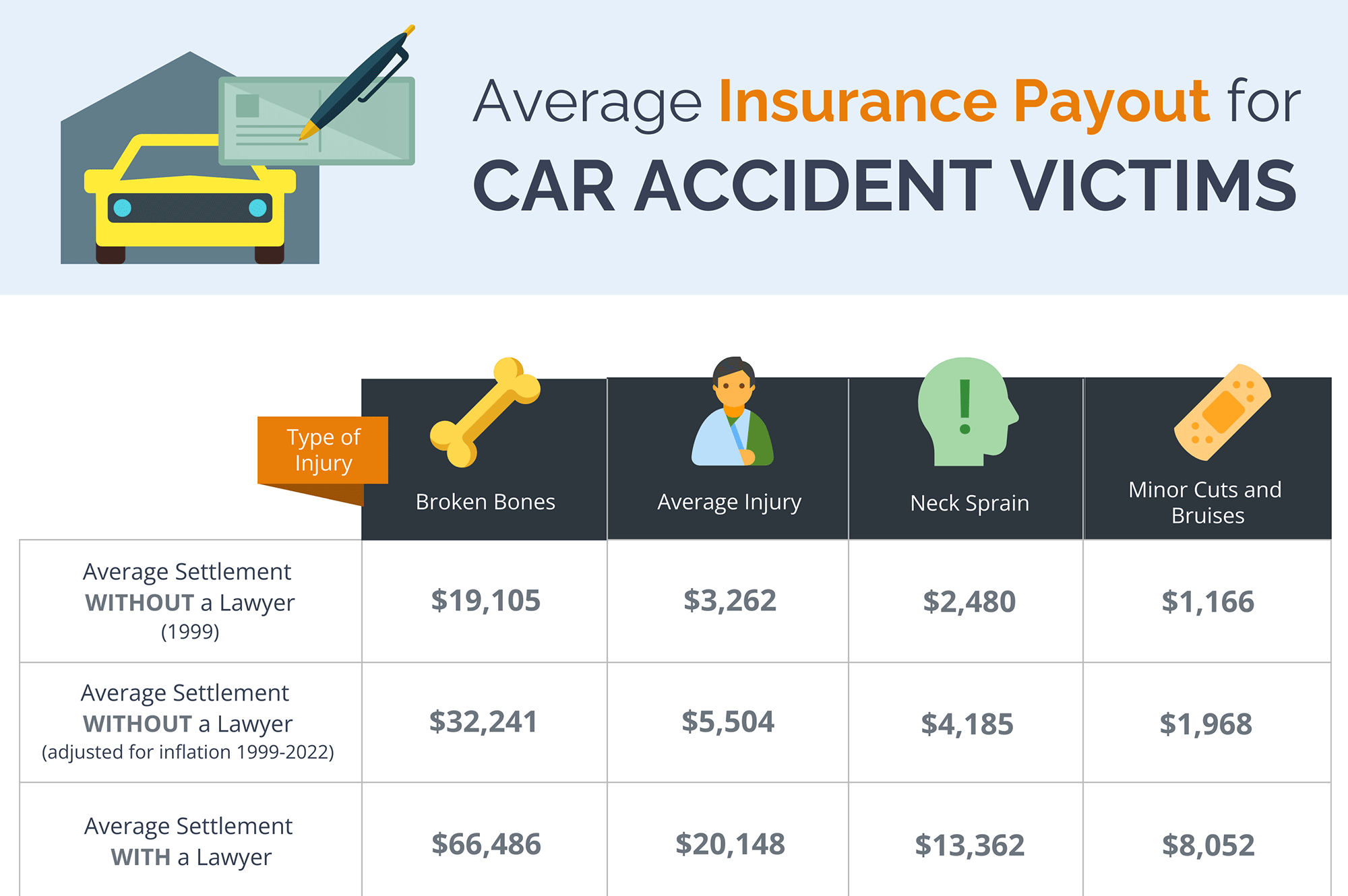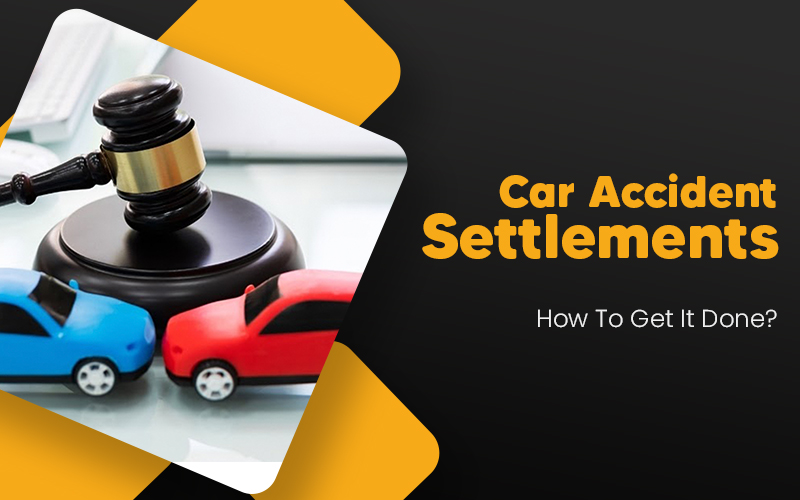Navigating the aftermath of an auto accident can be overwhelming, but understanding auto accident settlements is crucial for protecting your rights and ensuring fair compensation. In this guide, we’ll break down the legal framework, settlement process, and key factors that influence settlement value, empowering you to make informed decisions and maximize your recovery.
From determining liability to negotiating with insurance companies, we’ll cover every aspect of auto accident settlements, providing you with the knowledge and tools you need to navigate this complex legal landscape.
Legal Considerations
When it comes to car crashes, the law is on your side. There are a whole bunch of legal rules that govern auto accident settlements, and they’re there to protect you and make sure you get what you deserve.
Insurance companies play a big role in settlement negotiations. They’re the ones who pay out the money, so they’re going to try to get you to settle for as little as possible. That’s why it’s important to have a lawyer on your side who can fight for your rights.
Common Legal Issues
There are a lot of different legal issues that can come up in auto accident cases. Some of the most common include:
- Fault:Who was at fault for the accident? This is a key factor in determining who is liable for damages.
- Damages:What are the damages that you have suffered as a result of the accident? These can include medical expenses, lost wages, and pain and suffering.
- Insurance coverage:What insurance coverage is available to pay for your damages? This can include your own insurance, the other driver’s insurance, and uninsured motorist coverage.
Settlement Process
Navigating the settlement process after an auto accident requires an understanding of the typical steps, the roles of attorneys and insurance adjusters, and strategies for negotiating a fair settlement.
The settlement process typically involves the following steps:
- Filing a Claim:The injured party reports the accident to their insurance company and files a claim.
- Investigation:The insurance companies investigate the accident, gather evidence, and determine liability.
- Negotiation:The insurance companies negotiate a settlement amount with the injured party, considering factors such as medical expenses, lost wages, and pain and suffering.
- Settlement Agreement:If an agreement is reached, the injured party signs a settlement agreement releasing the insurance company from further liability.
Role of Attorneys and Insurance Adjusters
Attorneys represent the injured party and advocate for their best interests. They can help negotiate a fair settlement, handle legal paperwork, and protect their client’s rights.
Insurance adjusters work for the insurance companies and evaluate claims to determine the amount of compensation to offer. They may try to minimize the settlement amount to save the insurance company money.
Yo, if you’ve been in a car accident, don’t sweat it. Auto accident settlements can help you get the cash you deserve. Especially if you’re in Beverly Hills, hit up a beverly hills car accident lawyer. They’ll fight for your rights and make sure you get the settlement you’re owed.
Auto accident settlements can take the sting out of a bad situation, so don’t hesitate to reach out for help.
Negotiating a Fair Settlement
Negotiating a fair settlement involves:
- Documenting Damages:Gather medical records, bills, and other evidence to support your claim.
- Researching Similar Cases:Look for cases with similar injuries and settlements to determine a fair range.
- Be Prepared to Negotiate:Understand that both sides will likely start with different offers. Be willing to compromise to reach a settlement that is fair to both parties.
Factors Affecting Settlement Value
The value of a settlement in an auto accident case is influenced by several key factors. These include liability, damages, and pain and suffering. Let’s explore each of these factors and how they impact the settlement amount.
Liability
Liability refers to the legal responsibility of one party for the accident. The degree of liability can affect the settlement value. If the party you’re claiming against is found to be 100% liable, they are fully responsible for the damages.
If they are found to be partially liable, the settlement value may be reduced accordingly.
Damages
Damages refer to the financial losses and injuries sustained by the victim. These can include medical expenses, lost wages, property damage, and other out-of-pocket expenses. The extent of the damages will influence the settlement value, as higher damages typically result in higher settlement amounts.
Pain and Suffering
Pain and suffering refers to the physical and emotional distress experienced by the victim as a result of the accident. This is a subjective factor that can be difficult to quantify. However, it is often considered in settlement negotiations and can impact the settlement value.
Insurance Coverage Limits, Auto accident settlements
The insurance coverage limits of the at-fault party can also affect the settlement amount. If the at-fault party has low coverage limits, the settlement may be limited to the amount of coverage available. In such cases, it may be necessary to explore other options for compensation, such as pursuing a claim against your own insurance company.
Here are some examples of how these factors can affect the settlement value:
- If the at-fault party is found to be 100% liable and the victim has sustained significant damages, the settlement value is likely to be high.
- If the at-fault party has low insurance coverage limits and the victim has sustained minor injuries, the settlement value may be lower.
- If the victim has experienced severe pain and suffering as a result of the accident, the settlement value may be increased to compensate for their non-economic losses.
Settlement Options
When settling an auto accident case, there are various settlement options available to victims. Understanding the pros and cons of each option can help you make an informed decision.
Types of Settlement Options
- Lump-Sum Settlement:A one-time, upfront payment that covers all damages.
- Structured Settlement:A series of periodic payments made over time, usually with interest.
- Combination Settlement:A mix of lump-sum and structured payments, allowing for both immediate and future financial security.
Lump-Sum Settlement
Pros:
- Immediate access to funds for expenses, such as medical bills or property repairs.
- Simple and straightforward process.
Cons:
- Potential for mismanagement or premature spending of funds.
- No ongoing financial security if funds are exhausted.
Structured Settlement
Pros:
Yo, if you got into a car accident and you’re chillin’ with a fat settlement, don’t blow it all on fancy rims and a paint job. Instead, holla at your local mechanic and get your car battery replaced. That old battery is probably on its last legs and could leave you stranded when you least expect it.
Trust me, it’s better to be safe than sorry. So, get your battery replaced, and then you can ball out on whatever you want.
- Guaranteed financial security over time, even if funds are mismanaged.
- Tax benefits in some cases.
Cons:
- Less flexibility and control over funds.
- May not cover all future expenses, especially if injuries are severe.
Creative Settlement Solutions
In some cases, creative settlement solutions may be considered, such as:
- Medical lien:A settlement that allows victims to pay for medical expenses as they arise, reducing the lump-sum payment.
- Structured annuity:A contract that provides regular payments for a specified period, offering financial stability.
Impact of Settlements
Auto accident settlements can have a significant impact on an individual’s life, both positively and negatively. While settlements can provide financial compensation for damages and expenses, they can also raise concerns about future medical expenses and earning capacity.
Financial Impact
Settlements can provide financial relief for victims of auto accidents, covering expenses such as medical bills, lost wages, and property damage. However, it’s important to consider the long-term financial implications of the settlement. Victims may face ongoing medical expenses or a reduced earning capacity due to injuries sustained in the accident.
Physical Impact
Settlements can address the physical impact of auto accidents by providing compensation for medical expenses, rehabilitation, and assistive devices. However, it’s important to recognize that settlements cannot fully restore an individual’s physical health. Victims may experience ongoing pain, disability, or other physical limitations.
Emotional Impact
Auto accidents can have a profound emotional impact on victims, leading to anxiety, depression, and post-traumatic stress disorder (PTSD). Settlements can provide financial support for mental health treatment and counseling, but they cannot erase the emotional scars of the accident.
Resources for Support
Accident victims may benefit from seeking support and guidance from various resources. Support groups, legal aid organizations, and victim advocacy groups can provide emotional support, legal advice, and assistance in navigating the settlement process.
Yo, if you’ve been in a car wreck, getting a fair settlement is crucial. But navigating the legal side can be a headache. That’s where auto accident legal advice comes in. They can guide you through the process, ensuring you get the compensation you deserve.
Remember, a good settlement can make all the difference in getting back on your feet after an accident.
Final Review: Auto Accident Settlements
Auto accident settlements can have a profound impact on your financial, physical, and emotional well-being. By understanding the legal process, settlement options, and potential consequences, you can make informed decisions that protect your interests and promote your recovery. Remember, you are not alone, and there are resources available to support you throughout this journey.
Q&A
What is the first step I should take after an auto accident?
Seek medical attention immediately, even if you don’t feel injured. Report the accident to the police and exchange information with the other driver(s) involved.
How long do I have to file a claim for an auto accident?
The time limit for filing a claim varies by state, but it’s generally within one to two years from the date of the accident.
What should I look for in an auto accident attorney?
Experience in handling auto accident cases, a strong track record of success, and a commitment to personalized representation.


